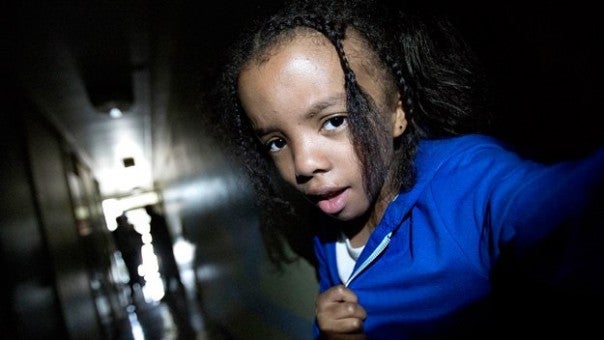TV review: Blackout, Channel 4 - A bleak meditation on a modern disaster that doesn't quite hit the spot

Your support helps us to tell the story
From reproductive rights to climate change to Big Tech, The Independent is on the ground when the story is developing. Whether it's investigating the financials of Elon Musk's pro-Trump PAC or producing our latest documentary, 'The A Word', which shines a light on the American women fighting for reproductive rights, we know how important it is to parse out the facts from the messaging.
At such a critical moment in US history, we need reporters on the ground. Your donation allows us to keep sending journalists to speak to both sides of the story.
The Independent is trusted by Americans across the entire political spectrum. And unlike many other quality news outlets, we choose not to lock Americans out of our reporting and analysis with paywalls. We believe quality journalism should be available to everyone, paid for by those who can afford it.
Your support makes all the difference."Please don't lose the plot, Britain." An illuminated face spoke from out of the darkness in Blackout, a dystopian drama told in faux-documentary style that imagined what would happen if the nation suffered a massive power failure following a suspected cyber-attack on the national grid. But, of course, Britain was going to lose the plot, because people always end up doing so in a drama of this kind. José Saramago's Blindness gave us the most masterful example of how quickly urban society melts into chaos, desperation and savage self-survival when one crucial civilising thing is taken away for an indefinite amount of time.
So it was here in this feature-length drama that tried hard to do something original without fully pulling it off (though it gets points for effort). Actual archive footage had been spliced with the fiction, and the frenzied criminality in some of the clips was reminiscent of the London riots. Not all of it was convincing, despite its mix of actual and imagined. Media reports provided a voiceover to the action in its rolling-news coverage, but why weren't media outlets disabled by the power cut?
The better part of this drama came in its latter half. At first, the effects of the blackout were novel, even amusing, for those struck by darkness: "They're taking widescreen TVs," scoffed one smug father as he saw the lootings, even though there was no electricity to power the loot. Footage of people stuck in a lift was accompanied by the jokey words that this inconvenience was topped off by a fat man in the lift who had just farted.
Then, as the days wore on, the streets became Darwinian. How long would it be, the drama seemed to ask, before all the good, upstanding people turned into Lord of the Flies savages, the strong doing all they could to survive, even if it meant exploiting the weak?
Though the "found footage" in the drama often seemed contrived and stagy – characters told their stories through "video selfies" to document the effect of the blackout – it gradually gained an emotional charge as the nation lived under a blanket of darkness for five days, the shops looted, the water and fuel shortages sparking illness and hunger, and the government unable to cope.
The drama was bleak not for its "worst-case scenarios" of what might happen to the infirm on life support in hospitals, or those who used candle-light at home and burnt their houses down, but the lack of altruism between people, though there were small moments of kindness: a man drove a woman and her daughter to her elderly mother's home in Sheffield; a neighbour took in that elderly woman after her water supply dried up. But, overall, it turned into a dog-eat-dog world. Money was quickly devalued in an environment with ever more dwindling supplies of food and fuel. A man offered cash for a neighbour's wood burner; another felt helpless in a supermarket of emptied shelves. The currency required to exist in this hostile new world was not cash but resourcefulness, lawlessness, perhaps even violence. So the neighbour's wood-burner was stolen and the man in the shop beat a man violently to take the few remaining edible goods on the shelves for his hungry family.
The other point made was that when we face a mass crisis, we feel a natural desire to document it. Either that, or that we are a nation of iPhone addicts making "video selfies" even as the world burns. Just as Holocaust poetry was being written by those walking into the gas chambers, and just as those near the Twin Towers on 9/11 made videos of its crumbling, so here the camera, and the spoken word, became a witness to suffering, and the need to document and describe ever more urgent.
Join our commenting forum
Join thought-provoking conversations, follow other Independent readers and see their replies
Comments